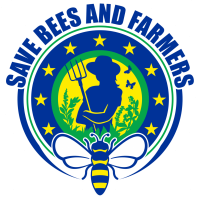Press releases
Recent research and publications reveal widespread environmental contamination with fluorinated forever chemicals. What they report seems to be only the tip of the iceberg. At this very moment, PFAS pesticides are still widely sprayed on our food and fields. The small and very persistent, soluble, mobile and toxic PFAS breakdown product TFA is polluting our surface, ground and drinking waters at an unprecedented scale. Reports by PAN Europe and members show that it is found all over Europe.
Today, an overwhelming majority of the Members of the European Parliament vetoed the European Commission's decision to allow residues of three EU-banned pesticides in certain imported food and feed products. This vote marks a significant victory for consumers and for EU and non-EU farmers. It also sends a strong message to the Commission that the new Parliament will stand up against a policy of double standards.
The EU Ombudsman urges the European Commission to speed up the substitution of the most hazardous pesticides within the EU. Following a complaint by PAN Europe, she concludes that there was no maladministration in the decision by the European Commission to rely on a standard adopted by the European and Mediterranean Plant Protection Organization (EPPO).
The use of conventional pesticides in agriculture on agricultural land will no longer be allowed in the Brussels region as of 2030. The use of synthetic pesticides by others than farmers will be banned in 2025. The new law went into force on the 17th of July (1). While this decision could be considered anecdotal, considering the few 250ha of agricultural land from the region, it creates a precedent as it is the first time a European region has taken such a decision to protect citizens' health and the environment against pesticides.
Alarmed by the high levels of contamination with the forever chemical TFA (trifluoroacetic acid) in European water bodies, the Pesticide Action Network (PAN Europe) analysed 55 drinking water samples (tap water and mineral water) from 11 EU countries. TFA mainly enters water as a degradation product of PFAS pesticides and F-gases. The results are summarised in the report TFA: The Forever Chemical in the Water We Drink.
On 26 June 2024, the European Commission rejected the formal request by PAN Europe and 5 of its member NGOs to review the 10-year re-approval of glyphosate. The NGOs plan to challenge the decision in court and have 2 months to file a court challenge.
In parallel to this legal procedure, all EU Member States are currently re-assessing glyphosate-based products. A national ban is perfectly feasible with the current legislation, as is shown by a guidance document issued by PAN Europe.
Today, Member States’ ambassadors to the EU have adopted an agreement giving EU countries the right to pollute rather than protect our water for the next decades, and to weaken existing water protection rules. The deal is a huge disappointment that fails to respond to Europe’s pressing water and biodiversity crises, environmental NGOs warn.
The EU Nature Restoration Law finally cleared the final hurdle in the EU Council of Environment Ministers today. More than 1 million people have called for measures to restore biodiversity with the European Citizens' Initiative (ECI) Save bees and farmers. "This is a historic step. Measures are now adopted that can become an important tool in the fight against the biodiversity crisis and the climate crisis.
Three NGOs have sued the Belgian State for reauthorising 3 highly toxic pesticides containing abamectin. The EU regulation clearly states that this dangerous pesticide can only be used in completely closed systems. Instead, Belgium allows use in open air and tunnels until 2039, to the detriment of the environment and citizens' health.
Pesticide Action Network Europe and its member organisations expose dirty PFAS legacy under the radar - swift political action required.

